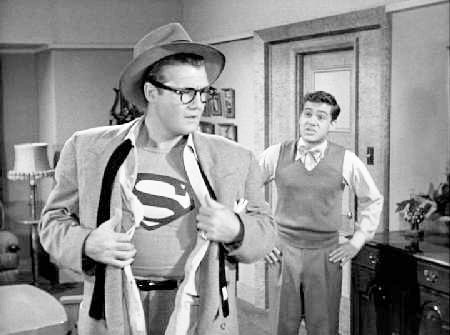
Superman sure looks good for a 75-year-old.
This year marks the 75th anniversary of the Man of Steel’s debut in Action Comics.
Patrick Brennan, a Fredericton-based writer for the site talkingcomicbooks.com, said our culture will always need Superman.
“I think Superman will be around well past another 75 years.”
In 1938, American writer Jerry Siegel and Canadian-born artist Joe Shuster teamed up to create what would become one of the most recognizable pop culture icons. And now the Royal Canadian Mint celebrates the Superman tradition with the release of collectible Superman coins.
The seven coins were recently issued, with prices ranging from $29.75 to $750. Jason Arnold, the owner of Fredericton’s comic shop Strange Adventures, said that Superman is worthy of recognition.
“I think it’s great, I think it’s well-deserved.””
Although Superman has transformed through the years, his core ideals have always remained the same, Truth, Justice and the American Way. Half of the creative brain which brought Superman to life was Canadian, but he is generally thought to be a vessel for American values. Lily Hamilton, a worker in Strange Adventures, said Superman should be seen as morality without borders.
“He was kind of a propaganda figure from the get-go with the American Way,” said Hamilton. “But Superman looks to be more like, he’s this Messiah figure.”
Superman’s appeal lies in this morality. He’s a character readers can look up to, even if his virtue seems unrealistic to attain in this modern age of irony. Brennan said Superman is something to strive toward.
“At his core, Superman is every one of us at our best,” Brennan said. “He’s finding the strength in yourself to do the right thing, to be brave enough to follow your gut even if it’s the unpopular decision.”
Canadians want a stake in this Messiah, too. Joe Shuster was born in Toronto, but he moved to Cleveland, Ohio when he was 10 years old. However, his Canadian childhood was influential in his image of Superman. Superman’s city “Metropolis” was modeled after Shuster’s Toronto and the paper Clark Kent worked for, the “Daily Planet”, was the Toronto Daily Star, which Shuster worked for as a delivery boy.
“Superman himself has said many times in comics he’s not an American,” said Arnold. “He’s a citizen of the world, and really, for all intents and purposes, of the universe.”
According to Brennan, Superman is an anchor in hard times. As long as there is a need for hope, he can provide it. He’s escapism that can leap over tall buildings in a single bound.
“We’re always going to need a Superman because there will always be circumstances in our lives where the odds feel insurmountable and hope is the only option.”
Arnold said even if Superman’s boy-scout attitude isn’t as popular as it might have once been, today’s audiences still love and need Superman.
“We don’t have a lot of heroes in reality,” said Arnold. “Now especially, even if it is fictitious, we still need those ideals to strive for.”
